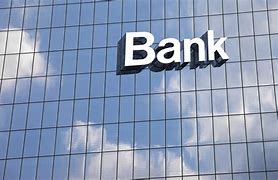How to Choose the Right Bank for You


Oke, berikut adalah paragraf pembuka untuk artikel SEO yang ramah tentang ‘How to Choose the Right Bank for You’:
Choosing the right bank can feel like a daunting task, especially with so many options available. From traditional brick-and-mortar institutions to online-only banks, the banking landscape is vast and diverse. But don’t fret! You don’t have to navigate this financial jungle alone. With a little research and some strategic thinking, you can find a bank that perfectly suits your needs and financial goals.
So, what exactly should you consider when selecting a bank? It all comes down to identifying your priorities:
- What kind of services do you need? Are you looking for basic checking and savings accounts, or do you need more complex products like loans, mortgages, or investment services?
- What’s your financial situation? Are you just starting out with your finances, or do you have more established financial needs?
- What’s your banking style? Do you prefer to handle everything online or do you like the personal touch of a brick-and-mortar branch?
- What fees are you willing to pay? Most banks charge fees for certain services, so it’s essential to understand what you’re paying for.
This article will guide you through the crucial steps to make a smart decision, answering questions like:
- What are the different types of banks available?
- How do I compare different banks based on fees & charges?
- What features should I prioritize for my financial needs?
- Are there any specific considerations for online-only banks?
- How can I ensure the bank is secure and reliable?
Let’s embark on this journey to find your perfect banking match, starting with a closer look at the diverse types of banks available today!
How to Choose the Right Bank for You
Navigating the world of banking can feel overwhelming, with countless options and confusing jargon. However, choosing the right bank is crucial for managing your finances effectively. This guide will walk you through the process of selecting the perfect banking partner, ensuring your financial journey is smooth and successful.
Why is Choosing the Right Bank Important?
Your bank acts as the foundation for your financial life. It holds your money, facilitates payments, offers financial products like loans and credit cards, and often provides investment options. Choosing the wrong bank can lead to:
- High fees and charges: Banks charge fees for various services, and these can significantly impact your overall savings.
- Limited access to financial products: Some banks might not offer the specific products or services you need, such as loans or investment accounts.
- Poor customer service: Dealing with a bank that lacks responsive and helpful customer service can be frustrating and time-consuming.
What are the Different Types of Banks?
Understanding the different types of banks available can help you narrow down your choices. Here are some common options:
- Commercial banks: These offer a wide range of financial products and services for individuals and businesses. They often have extensive branch networks and online banking platforms.
- Credit unions: These are member-owned financial institutions that typically focus on serving specific communities. They often offer lower fees and higher interest rates on savings accounts.
- Online banks: These operate solely online and offer competitive interest rates and reduced fees. They might lack physical branches, however.
- Community banks: These are smaller, locally-owned banks that often prioritize personalized customer service and community involvement.
What are the Benefits of Each Bank Type?
- Commercial banks: Offer a wide range of products and services, convenient access through branches and online platforms.
- Credit unions: Offer lower fees, potentially higher interest rates, and a focus on member satisfaction.
- Online banks: Provide competitive interest rates, reduced fees, and convenient online access.
- Community banks: Offer personalized customer service, community involvement, and a focus on local needs.
What are the Drawbacks of Each Bank Type?
- Commercial banks: May have higher fees compared to other options, can feel impersonal with large branch networks.
- Credit unions: May have limited product offerings compared to commercial banks, membership requirements can be restrictive.
- Online banks: Lack physical branches for in-person transactions, security concerns for some customers.
- Community banks: Limited branch networks, fewer products and services compared to larger banks.
What to Consider When Choosing a Bank?
Selecting the right bank is a personal decision based on your individual needs and preferences. Here are some crucial factors to consider:
Your Needs and Goals
- Are you looking for a simple checking and savings account, or do you require a broader range of financial products?
- Are you saving for retirement, buying a house, or planning for a specific financial goal?
Your Financial Situation
- What is your current income and spending habits?
- Do you have any outstanding debts or loans?
- How much money do you have available for an initial deposit?
Your Banking Habits
- Do you prefer in-person transactions or online banking?
- How often do you need to access your money?
- Do you travel frequently and need access to ATMs and banking services internationally?
Your Location
- Does the bank have branches or ATMs conveniently located near you?
Key Features to Look For in a Bank
- Checking and Savings Accounts: Compare interest rates, fees, and minimum balance requirements.
- Credit Cards: Look for cards with competitive interest rates, rewards programs, and travel benefits.
- Loans: Explore different loan options, including personal loans, auto loans, and mortgages, and compare interest rates and repayment terms.
- Investment Options: If you’re interested in investing, consider the bank’s investment offerings, such as mutual funds, ETFs, and brokerage accounts.
- Mobile Banking and Online Services: Choose a bank with a user-friendly mobile app and comprehensive online banking features.
- Customer Service: Look for a bank with responsive and helpful customer service through phone, email, and live chat.
- Fees and Charges: Review the bank’s fee schedule for services like overdraft protection, ATM withdrawals, and monthly maintenance.
How to Research and Compare Banks
- Read Reviews and Testimonials: Check online review sites like Bankrate, NerdWallet, and Trustpilot for insights into customer experiences.
- Use Online Comparison Tools: Websites like Bankrate and NerdWallet allow you to compare features and fees across different banks.
- Visit Bank Websites and Branches: Explore the bank’s website for details on its products, services, and fees. Visit a branch in person to experience the customer service and facilities firsthand.
Opening a Bank Account
Once you’ve chosen a bank, the process of opening an account is usually straightforward. You’ll typically need the following:
- Required Documentation: Photo ID, Social Security number, proof of address.
- Initial Deposit Requirements: Each bank sets a minimum initial deposit amount, which varies depending on the account type.
- Account Activation Process: Complete a bank application form, provide the necessary documentation, and make your initial deposit.
Conclusion
Summary of Key Points
Choosing the right bank is crucial for managing your finances effectively. Consider your individual needs, financial situation, banking habits, and location. Compare features, fees, and customer service, and research potential banks thoroughly before making a decision.
Importance of Choosing the Right Bank
The right bank can help you save money, access essential financial products, and simplify your financial life.
Encourage Readers to Take Action
Take the time to research and compare banks before opening an account. Consider your specific needs and preferences to find the best banking partner for your financial journey.


